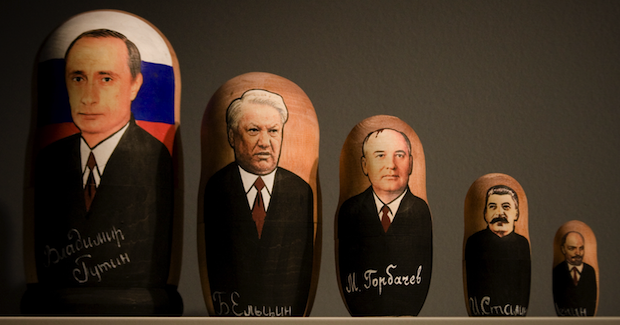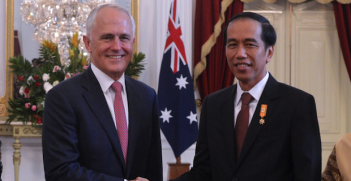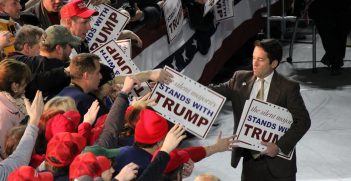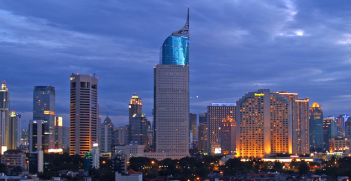The Soviet Union's Long Shadow

In the 25 years since the collapse of the USSR, the West’s relations with the largest nation on Earth have once again slowly grown sour. Looking back to the mistakes that spawned today’s Russia may hold the key to explaining and overcoming the most recent animosities.
August 1991 was never going to be another lazy, summer month when Muscovites fled the city for their dachas and a month seemed like three. Twenty-five years ago, summer was different.
Protesters—often in their hundreds of thousands—made regular appearances on the streets of Moscow. In the republics, governments were being challenged by demands for independence. Mikhail Gorbachev, surrounded by his praetorian guard of like-minded liberals, had given his blessing to a public condemnation of Stalin and his crimes so clear and inarguable that the hard left of the Soviet Communist Party was visibly apoplectic with rage.
When the then head of the then KGB Vladimir Kryuchkov appeared on nightly television in late July to warn that only chaos could result from “spinelessness in the face of the social and economic chaos” that had enveloped the USSR under the weight of Gorbachev’s perestroika or economic restructuring, it was over. Mikhail Gorbachev could not, would not, last long enough in power to see his dream of an open and tolerant socialist state.
With six republics—led by the Baltic states—having all but left the USSR, the New Union Treaty which Gorbachev had been negotiating with the nine remaining republics was a doomed folly. The hardliners were never going to permit him to sign it.
And so, it came to pass.
On 19 August 1991, an ill-conceived plan to oust Gorbachev was actioned by an emergency committee led by the KGB boss. Gorbachev, the last President of the USSR was placed under house arrest in Crimea, then still in Ukraine. Swan Lake was played on loop on state television. Again, people took to the streets, tens of thousands of them, demanding the return of their president.
That the attempted coup would fail seemed clear almost from the start; no order had been given to seize the means of communications. Boris Yeltsin, the recently elected president of Russia, was still a free man rallying protesters to the Russian parliament and when the coup plotters finally appeared before the media, some were drunk.
In 3 days, it was all over. And by 25 December, it would be all over for the USSR too.
On the 25th anniversary of that failed coup in 2016, only small groups of pro-democracy activists braved the streets. Though the three Russians who had died in the coup attempt had been posthumously made national heroes for “their bravery in the defence of democracy”, the government of Vladimir Putin was in no mood to allow democracy celebrations to grab hold of the public imagination again. To make sure it didn’t, he banned all tributes and celebrations.
A Levada poll showed slightly more than half of Russians had only vague memories of August 1991, a result no doubt reflective of the demographic polled. Only 8 per cent of those polled thought the defeat of the KGB-led coup was a victory for democracy.
It’s unsurprising that for many aged 40 and over, there was little good to recall from August 1991; Vladimir Putin, like all of his compatriots, had seen the food shortages and tanks on the street. Nor was there much to be remembered through rose coloured glasses from the years after the USSR collapsed. Few in the West can comprehend how confronting and offensive it was to the Russians to see their empire dissolve and to be treated with contempt by a Washington that believed it had won the Cold War.
Boris Yeltsin, lauded for standing up for ‘democracy’ spent a decade watching the wholesale submission of his nation to the whims of Washington’s demands for systemic, pro-US reform. The years of Yeltsin-style capitalism brought little more than abject poverty, rampant inflation, spivvy young Americans touting new business plans and insurrection in far flung parts of an empire that was no more. To add insult to injury, a small group of enterprising Russians were on the road to becoming latter day oligarchs, leeching off a broken system of Soviet ownership. If this was democracy, it was a poor substitute for even the cruel, oppressive Soviet system it had replaced.
If not for the money of a then small group of wealthy businessmen who were becoming rich beyond their own dreams and the clear election tampering in the rogue semi-autonomous republic of Chechnya—tampering which was sanctioned by the West—the Russian Communist Party might well have won the 1996 presidential election, a mere 5 years after the Soviet Union was dissolved by Gorbachev. It was back then the stage was set for what has turned out to be a remarkably persistent meme: democracy versus autocracy. Putin, the autocrat v the US administration, with the global police enforcing democracy.
Had the Yeltsin years been less chaotic, less suborned to Western values and had the West been more attune to Russia’s strategic sensibilities and not sanctioned NATO’s move into Russia’s indisputable sphere of influence, then perhaps the collapse of a tyrannical and oppressive system of government might have been remembered as a victory for democracy.
When Washington, London, Berlin and Geneva try to work out how to deal with Vladimir Putin, they’d be advised to look back to August 1991 and their role in treating Russia with contempt during the long Yeltsin years. Russians are the masters of adversary. But too much of a bad thing isn’t good for anyone.
Monica Attard OAM is an Australian journalist and the winner of four Walkley Awards including the 1991 Gold Walkley Award. She was honoured with the Medal of the Order of Australia in 1992 for her work as a Russian correspondent during the fall of the USSR.
This article is published under a Creative Commons Licence and may be republished with attribution.





